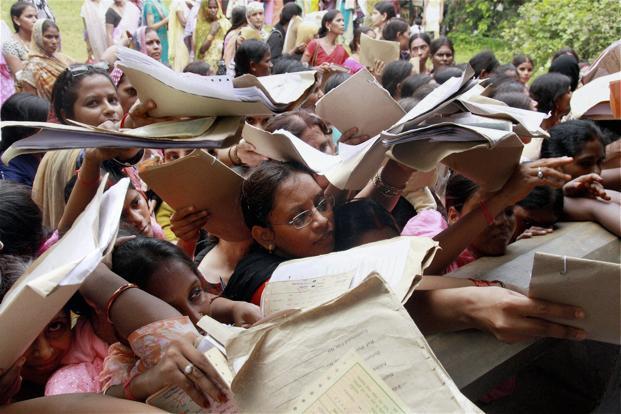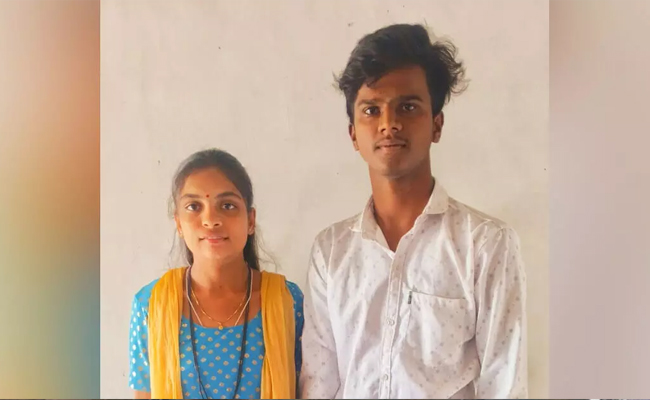United Nations, Jun 2: Over 200 million people globally are likely to become unemployed in 2022 and an additional 108 million workers are now categorised as poor or extremely poor as the coronavirus pandemic brought unprecedented disruption that will scar the social and employment landscape for years to come if concerted policy actions are not taken, according to a UN report.
The UN labour agency, the International Labour Organisation (ILO), in its flagship World Employment and Social Outlook: Trends 2021, released on Wednesday said the labour market crisis created by the COVID-19 pandemic is far from over, and employment growth will be insufficient to make up for the losses suffered until at least 2023.
The pandemic has brought unprecedented disruption that absent concerted policy efforts will scar the social and employment landscape for years to come," it said.
The report noted that in 2020, an estimated 8.8 per cent of total working hours were lost the equivalent of the hours worked in one year by 255 million full-time workers.
The report projects the global crisis-induced jobs gap' will reach 75 million in 2021, before falling to 23 million in 2022. The related gap in working-hours, which includes the jobs gap and those on reduced hours, amounts to the equivalent of 100 million full-time jobs in 2021 and 26 million full-time jobs in 2022.
This shortfall in employment and working hours comes on top of persistently high pre-crisis levels of unemployment, labour underutilisation and poor working conditions.
"In consequence, global unemployment is expected to stand at 205 million people in 2022, greatly surpassing the level of 187 million in 2019. This corresponds to an unemployment rate of 5.7 per cent. Excluding the COVID-19 crisis period, such a rate was last seen in 2013, it said.
The worst affected regions in the first half of 2021 have been Latin America and the Caribbean, and Europe and Central Asia. In both, estimated working-hour losses exceeded eight per cent in the first quarter and six per cent in the second quarter, compared to global working-hour losses of 4.8 and 4.4 per cent in the first and second quarter, respectively.
The fall in employment and hours worked has translated into a sharp drop in labour income and a corresponding rise in poverty.
Compared to 2019, an additional 108 million workers worldwide are now categorised as poor or extremely poor," meaning they and their families live on the equivalent of less than USD 3.20 per person per day.
Five years of progress towards the eradication of working poverty have been undone, the report said, adding that this renders the achievement of the UN Sustainable Development Goal of eradicating poverty by 2030 even more elusive.
ILO Director-General Guy Ryder said recovery from COVID-19 is not just a health issue and the serious damage to economies and societies needs to be overcome too.
Without a deliberate effort to accelerate the creation of decent jobs, and support the most vulnerable members of society and the recovery of the hardest-hit economic sectors, the lingering effects of the pandemic could be with us for years in the form of lost human and economic potential and higher poverty and inequality, he said.
Ryder underscored the need for a comprehensive and co-ordinated strategy, based on human-centred policies, and backed by action and funding. There can be no real recovery without a recovery of decent jobs, he noted.
Global employment recovery is projected to accelerate in the second half of 2021, provided that there is no worsening in the overall pandemic situation.
However this will be uneven, due to unequal vaccine access and the limited capacity of most developing and emerging economies to support strong fiscal stimulus measures. Furthermore, the quality of newly created jobs is likely to deteriorate in those countries, the report said.
The report noted with concern that the crisis has also hit women disproportionately as their employment declined by 5 per cent in 2020 compared to 3.9 per cent for men. A greater proportion of women also fell out of the labour market, becoming inactive. Additional domestic responsibilities resulting from crisis lockdowns have also created the risk of a re-traditionalisation of gender roles.
Globally, youth employment fell 8.7 per cent in 2020, compared with 3.7 per cent for adults, with the most pronounced fall seen in middle-income countries.
The consequences of this delay and disruption to the early labour market experience of young people could last for years, the report said.
Let the Truth be known. If you read VB and like VB, please be a VB Supporter and Help us deliver the Truth to one and all.
Bengaluru: In an incident reported from the state capital, more than 3,000 people living in Fakir Colony of the Kogilu Layout near Yelahanka were rendered homeless by the officials of the Greater Bengaluru Authority (GBA) on Saturday.
The officials, who said the 400 houses were constructed on encroached land, held the operation using nine tractors and nine earthmovers, razing down the houses.
They have ousted around 90 per cent of the families who had been living in the area for more than 30 years and belong to minority communities, including Muslims from the colony.
The bereaved residents have insisted that the government had provided them land in the locality to build houses and reside. “We have all official documents as well as Aadhaar cards and voter IDs as proofs. Our source of livelihood is only manual labour,” they added.
“Many of the families had mortgaged the houses to get loans from banks, but the GBA officials have razed our houses without giving any prior notice,” they said and added, “Some of the women here are pregnant, but the officers showed no concern for such people too.”
Referring to the title deeds, the residents said that the local representatives had assured them that they would be handed the documents. “So far, however, we were not told to vacate the houses. Since the houses were unexpectedly razed, our children’s documents and other valuables in the houses have been destroyed,” the residents added angrily.
They also expressed fury about representatives failing to come to their help in times of need. “They come here only to campaign and get our votes. When questioned about the propriety of destroying the houses, the police officers assaulted us,” some of them said.
Sara Saif Saufique, one of the residents in the Fakir Colony, said, “My family has been living here for three decades, but has unexpectedly lost the house since the officers did not give us notice. They came at around 4:30 am on Saturday, when we were sleeping, and started destroying the houses.”
She said with fury, further, “The officials also forcibly evicted us from the houses, without even permitting us to gather our winterwear or blankets.”





